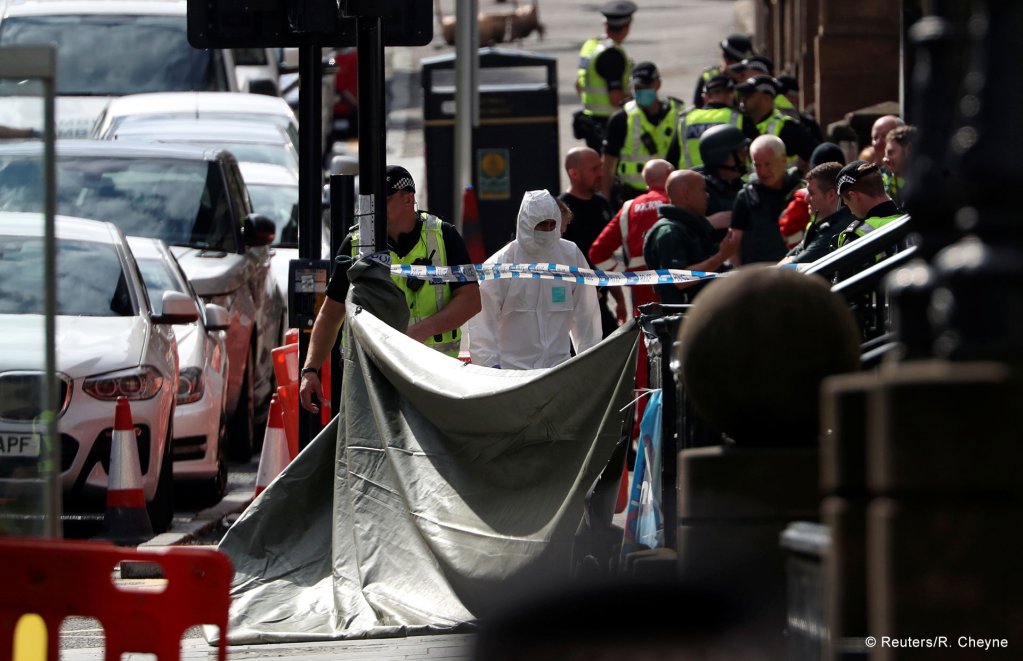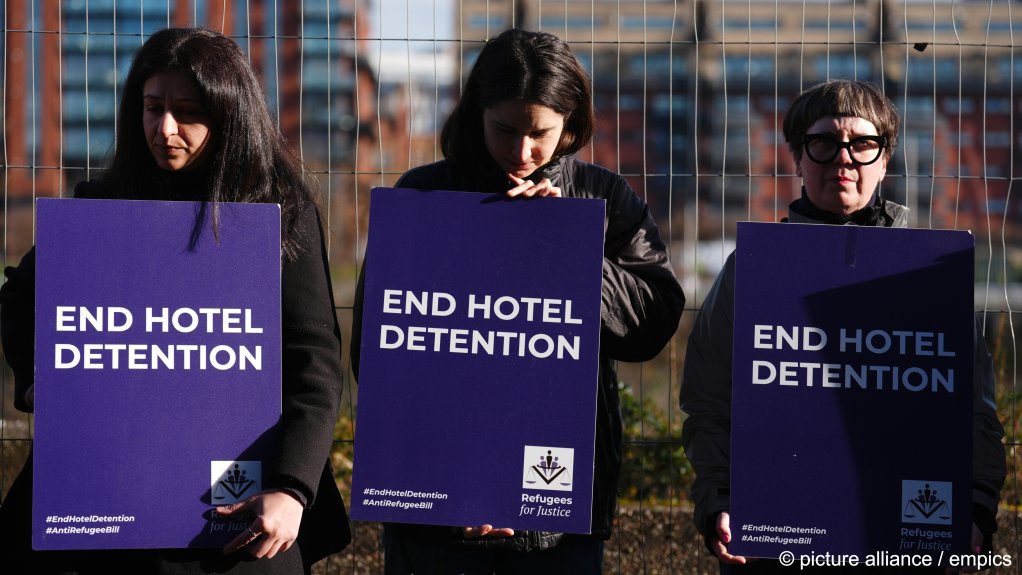A preliminary hearing from a new inquiry into the wrongful police killing of an asylum seeker in Glasgow in 2020 has found certain irregularities on the part of authorities. This refutes an earlier report saying that actions taken by the police during the fatal incident were deemed "proportionate." The investigation, however, is still ongoing.
Badreddin Abdalla Adam Bosh, a 28-year-old asylum seeker from Sudan, injured a police officer after stabbing three asylum seekers and two staff members at the Park Inn hotel during a prolonged stand-off on June 26, 2020 before being fatally shot by the police.
This shooting followed a number of unsuccessful attempts to disarm the Sudanese asylum seeker using non-lethal weapons.
The police claimed it ultimately had to resort to shooting the man to disarm him, resulting in fatal injuries at the scene.
This particular scenario, however, is now under investigation as part of a series of preliminary hearings into the case, which began this Tuesday, (March 11) at Glasgow Sherriff Court.
Read AlsoHousing asylum seekers in hotels is costing the UK £8 million per day
Question of proportionality of police methods
The Crown Office had previously investigated the incident, concluding that actions taken by the police had been proportionate and "absolutely necessary" to the threat posed by Bosh at the time.
Now, a preliminary hearing ahead of a fatal accident inquiry (FAI) at Glasgow Sheriff Court appears to have found some evidence to the contrary.
On Tuesday, the inquiry heard that police officers used a smoke grenade in error during the stand-off with Bosh at the Park Inn hotel.
Instead of using a smoke device, police should have used a stun grenade, indicated initial findings, calling the smoke device, "inappropriate to the situation."

Wrong weapons used in hotel
The device caused the hotel's fire alarm to be activated, adding further confusion to the already heated situation.
Shelagh McCall, a senior solicitor representing the Scottish Police Federation, said that this error may have interfered with proper communication channels between the armed officers and was therefore a "potential factor relevant to the death.”
"A smoke grenade was entirely inappropriate to the situation," McCall told the hearing on Tuesday, adding that a police officer had apparently selected the wrong device from the gun safe and another one had then detonated it in the hotel "not appreciating that it was the wrong kind of device.”
The smoke grenade itself, however, is not believed to have contributed to or directly caused Bosh's death, she added.

Mental health issues during COVID-19
Bosh was among hundreds of asylum seekers who had been sent to hotel accommodation in the city center at the beginning of the lockdowns for COVID-19.
The inquiry heard that he told his family that he had struggled to adapt to life at the hotel alongside another 100 asylum seekers, especially after contracting COVID himself. Prior to the Park Inn hotel, he had been staying in a flat.
Bosh had contacted Home Office officials and contractors working for the Home Office a total of 72 times, before he died, raising concerns about his health and his dissatisfaction with the hotel accommodation.
According to the solicitor representing Bosh's family, Aamer Anwar, he had reportedly even applied for voluntary return to Sudan, though the process suffered severe delays due to the pandemic.
Migrant charities have expressed concern earlier about the mental health of vulnerable individuals being forced to stay at hotels.
Read AlsoIs the UK government planning to house migrants on cruise ships?
A prolonged investigation
The next preliminary hearing in the case is due to take place on 23 June and might take months to conclude, as there are currently 83 witnesses on the witness list waiting to be heard.
Unlike criminal proceedings, FAI hearings are used to establish facts rather than assign blame to any party.
Both solicitors agreed to protect the identities of the police officers involved during the hearings.
The inquiry is designed to determine the cause of death and establish the circumstances in which it occurred while also assessing what reasonable precautions could have prevented it and should therefore be applied to similar circumstances in the future.
Read AlsoGlasgow: Men threatened with deportation released after protest
